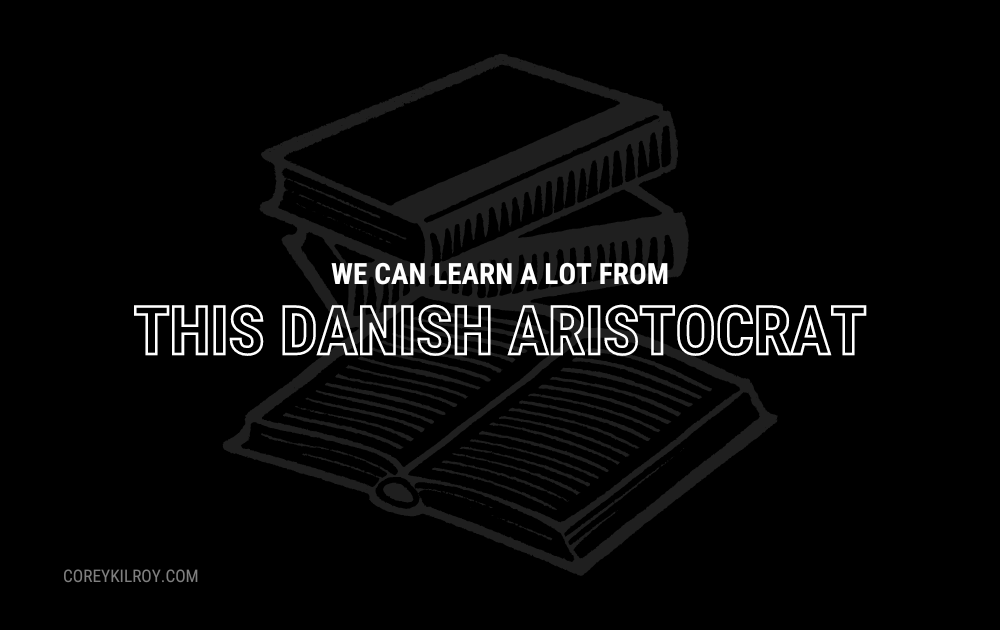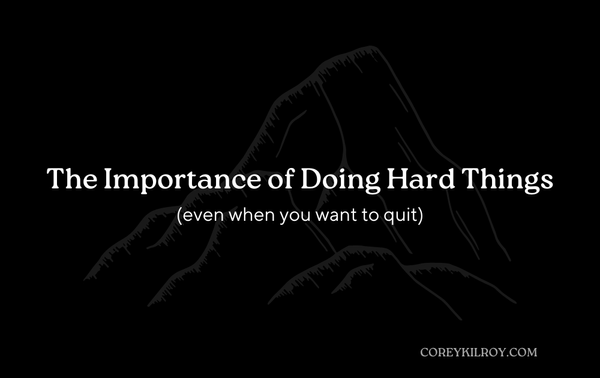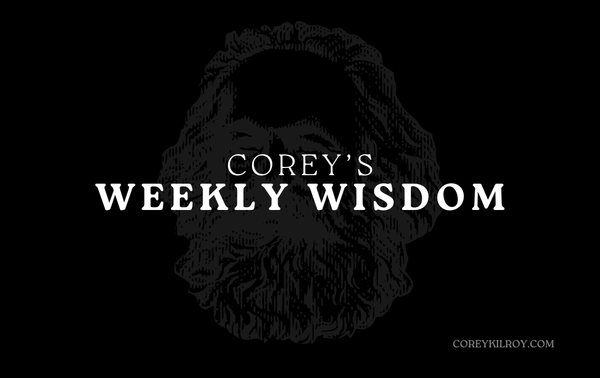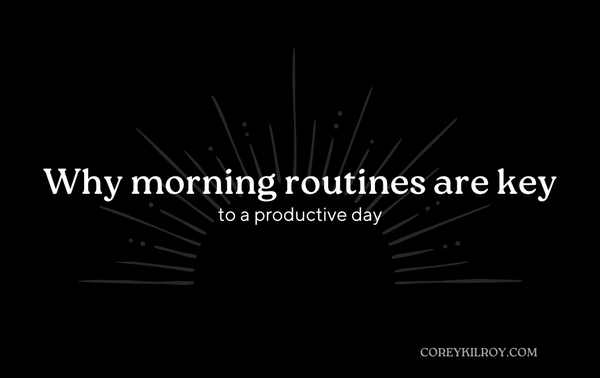Change of pace from modern life.

Today’s essay stems from a story that author Annie Dillard offers about a change of pace from modern life:
"The most appealing daily schedule I know is that of a turn-of-the-century Danish aristocrat. He got up at four and set out on foot to hunt black grouse, wood grouse, woodcock, and snipe. At eleven he met his friends, who had also been out hunting alone all morning. They converged "at one of these babbling brooks," he wrote.
He outlined the rest of his schedule. "Take a quick dip, relax with a schnapps and a sandwich, stretch out, have a smoke, take a nap or just rest, and then sit around and chat until three. Then I hunt some more until sundown, bathe again, put on a white tie and tails to keep up appearances, eat a huge dinner, smoke a cigar and sleep like a log until the sun comes up again to redden the eastern sky. This is living ... Could it be more perfect?"
There are numerous lessons to take from this story, so here’s my interpretation.
Lesson 1. With solitude must come camaraderie.
Nowadays it’s often promoted, especially to us men, that we must maintain a “lone wolf” or “I’ll do it myself” mantra in life.
While this can benefit you during tough times in life, it can only get you so far.
Notice how the Danish man in the story woke up and went off to hunt all morning by himself.
After he was done, he converged and met up with friends, who also hunted all morning, and they discussed their experiences.
As humans, we’re a social species. Life shouldn’t be experienced alone.
We need a circle of like-minded friends who all share the same goals & hobbies.
After all, we are the result of our environment.
If we want to be a jacked, successful hunter or businessman, then we must surround ourselves with other jacked, successful hunters and businessmen to get us there.
It’s that simple.
The Danish man could spend his time alone, hunting every day and keeping all his thoughts to himself.
But this ultimately leads to a lonely life.
Not only this, but progress has a higher chance of plateauing.
The fact that he has friends who also love to hunt, allows him to not only socialize but also bounce ideas off of one other.
This will ultimately lead to faster progress than trying to do it alone.
Yes, many of us - including myself - need isolation to “recharge” our social battery and get some work done efficiently.
But, this should only be done for a certain amount of time. Otherwise, the thoughts we reflect on become overwhelming and will lead to anxiety and depression.
I’ll say it again, we’re a social species.
We need time with the ones we love. Time socializing with others. And surrounding ourselves with like-minded individuals.
Lesson 2. We need mindless rest.
The hustle culture of today’s society is toxic.
Yes, we must work hard, be disciplined, eat right, train, and with a little bit of luck, our goals will be accomplished.
But without proper rest and recovery, this all means nothing.
Our brains (and bodies) will be mush without it.
We’ll simply burn out.
To prevent this, we need scheduled time in our agendas to reset.
In the Danish man’s case, he allows some time after his morning hunt to relax, eat, and reset before he’s off hunting the rest of the evening.
We should be prioritizing the same.
In training, there’s a reason programs have deload weeks every 4-5 weeks.
With work, there’s a reason we need to schedule vacation time every year.
Our minds and bodies need a break.
Even a simple 1 hour of leisurely reading or (dare I say) an episode of your favorite Netflix series every so often helps immensely.
Lesson 3. The importance of work ethic & discipline.
With all this talk about rest, the Danish man still never neglects his hard work.
I honestly appreciate his dedication to waking up at 4 AM to hunt and then after an afternoon nap and relaxation, gets back to hunting in the evening.
He had every reason to sleep in, or extend his afternoon nap, or have another glass of schnapps, but he decided to buckle back up and get back to the hunt.
It’s about doing the work, even when you don’t want to, on a regular basis that provides results.
Putting in the work day in and day out will ultimately grant you your goals.
— // Corey Kilroy 🐅 (@kilroyfit) April 21, 2023
No amount of talent will get you there, at least not in the long term.
When discipline & consistency are put together, anything is achievable.
Lesson 4. Fulfillment means working on our purpose.
Let's read the last sentence of the story again, “This is living ... Could it be more perfect?"
After hearing about all the Danish man did in one day, hunting from 4 AM to late into the evening, meeting up with friends, having dinner, etc., he still considered it to be the perfect day.
Why?
Because he’s doing what he loves.
As humans, we find happiness and the most fulfillment in life when we’re doing the thing that lights our soul on fire.
Doing the thing that takes a lot of work but doesn’t feel like work.
That’s what we should be striving for - work that feels like play.
We’ll live a long and happy life if we prioritize this lesson.
True happiness originates from us working in our purpose.
— // Corey Kilroy 🐅 (@kilroyfit) August 1, 2023
Do something that makes your eyes light up!
Repeat daily.
🏁 In the end…
There’s a lot we can learn from the life of the Danish aristocrat.
Life is all about balance.
We need hard work, but we also need rest and recovery.
It’s that fine line we must constantly teeter on, but it’s worth it in the end.
Be well.
Until next time, C.
P.S. Whenever you're ready, here's how I can help you:
- Follow me on Twitter (X) and Instagram for more on improving the body, mind, & environment.
- Help me create a resource that will benefit your journey here.



